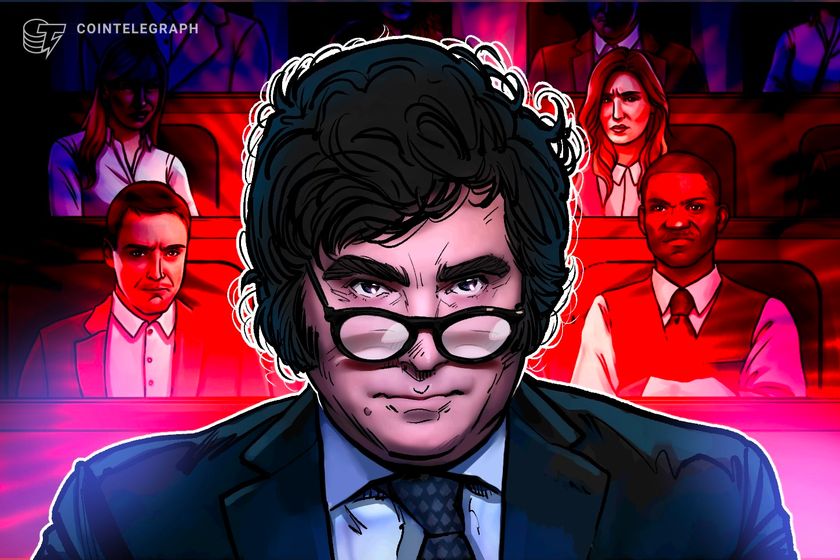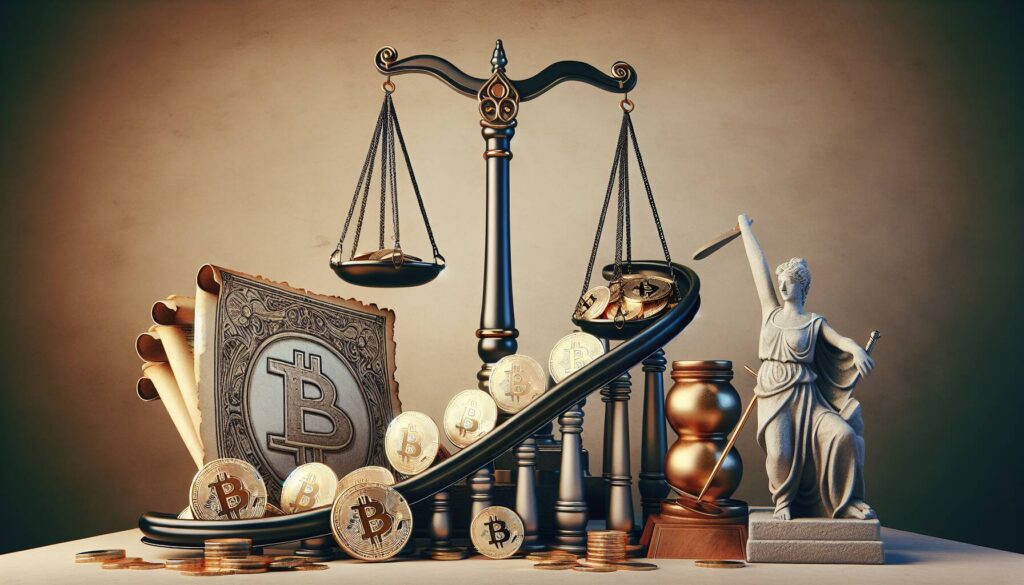In a dramatic turn of events within Argentina’s political and cryptocurrency landscape, lawmakers in the Chamber of Deputies have launched an investigation into President Javier Milei’s potential involvement in the high-profile Libra (LIBRA) cryptocurrency scandal. On April 8, a vote resulted in 128 deputies supporting the investigation, while 93 opposed it, alongside seven abstentions, according to the Buenos Aires Times. This recent development follows Milei’s vocal promotion of the LIBRA memecoin, which soared to a market cap of $4 billion during its initial surge.
“The promotion of LIBRA by President Milei has raised numerous allegations and concerns amongst the public and lawmakers,”
With a staggering 3.8 million followers on social media, Milei’s endorsement quickly captured attention, leading many to invest in the token. However, soon after its rise, critics began to label LIBRA a potential rug pull scam, claiming that Milei played a pivotal role in drawing in unsuspecting investors. Prominent lawyer Jonatan Baldiviezo, alongside several other notable figures, has filed a lawsuit against Milei, alleging fraud and an “illicit association” with the coin’s promoters. Reports indicate that over 40,000 investors may have lost more than $4 billion in this tumultuous situation.
“More than 86% of those who sold LIBRA at a profit or loss of over $1,000 experienced significant losses, totaling $251 million,”
Contentious claims surrounding the memecoin have continued to unfold. An alarming revelation came to light when it was reported that Hayden Davis, linked to the project, allegedly suggested compensating Milei’s sister to secure the president’s promotional support for LIBRA. This has intensified scrutiny on Milei, who, despite mounting evidence and social media posts endorsing the token, has denied directly promoting it, stating, “What I did, I spread the word.” As the situation evolves, the investigation sheds light on the intricate relationship between politics and the booming world of cryptocurrencies in Argentina.
Investigation into President Milei’s Involvement in LIBRA Cryptocurrency Scandal
Key points from the recent developments regarding President Javier Milei and the LIBRA cryptocurrency scandal include:
- Support for Investigation:
- The Chamber of Deputies in Argentina voted 128 to 93 in favor of investigating President Milei’s alleged involvement in the LIBRA scandal.
- This vote follows previous failed attempts to progress the proposal in the Senate.
- LIBRA Token Promotion:
- Milei actively promoted the LIBRA memecoin on social media, leveraging his credibility and large following of 3.8 million users.
- The token reached $5 and a brief market cap of $4 billion before becoming controversial.
- Allegations of Fraud:
- Critics have accused Milei of being involved in a “rug-pull” scam, claiming he misled investors into participating in LIBRA.
- A lawsuit has been filed accusing him of fraud, emphasizing his role in an “illicit association” with the token’s promoters.
- Major Financial Losses:
- Reports indicate that over 40,000 investors lost more than $4 billion as a result of the LIBRA scandal.
- Data shows that approximately 86% of investors who engaged with the LIBRA token incurred losses, totaling around $251 million.
- Denial of Promotion:
- Despite evidence of his promotion, Milei denied endorsing the LIBRA token, stating his actions were merely spreading awareness.
- Controversial Connections:
- One of the LIBRA token creators allegedly claimed he could pay Milei’s sister to influence the president’s promotion of the token.
- This raises concerns about potential conflicts of interest and ethical implications within Milei’s administration.
These developments highlight the dangers of investing in cryptocurrencies, particularly those endorsed by influential figures. Readers should be aware of the risks and conduct thorough research before engaging with such investment opportunities.
Argentina’s LIBRA Scandal: A Case Study in Cryptocurrency Governance
The recent vote by Argentina’s Chamber of Deputies to investigate President Javier Milei’s alleged connections to the LIBRA cryptocurrency scandal underlines a significant shift in the intersection of politics and cryptocurrency. With lawmakers casting 128 votes in favor of an inquiry, the embattled president now finds himself entangled in serious accusations that could reshape public trust in crypto governance.
Competitive Advantages: This investigation could potentially strengthen regulatory frameworks surrounding cryptocurrencies in Argentina. Unlike the relatively unmonitored environments many countries provide for crypto transactions, a thorough inquiry may prompt lawmakers to establish stricter guidelines, encouraging more responsible practices among crypto influencers and investors. Such governance can foster a safer investment landscape, which may benefit the wider community of legitimate cryptocurrency projects striving for compliance and ethical standards.
Furthermore, this scandal comes at a time when scrutiny of cryptocurrencies is heightened globally due to various incidents involving scams and fraudulent schemes. By addressing issues internally, Argentina can position itself as a model for other nations grappling with the chaotic crypto landscape, showcasing a willingness to confront problems rather than sweep them under the rug.
Disadvantages: However, the fallout from this scandal could heavily affect the nascent reputation of the cryptocurrency market in Argentina. Investors and potential business partners may hesitate to engage with projects emanating from a country embroiled in such controversies. This hesitation could stifle innovation and hinder economic growth in a sector teeming with potential. Furthermore, if the investigation reveals more damning evidence, it could lead to a loss of faith in elected officials, further complicating political landscapes and investor relations.
This situation uniquely impacts multiple stakeholders. For legislators and regulators, an opportunity arises to set precedents in cryptocurrency regulations. However, for investors—especially the 40,000 affected by the LIBRA fallout—the inquiry might feel like a double-edged sword, as it may bring about accountability but also deepen market volatility in the interim. Aspiring cryptocurrency entrepreneurs in Argentina must now navigate a treacherous public sentiment, which could delay future investment and development efforts.
Observing the developments surrounding this investigation will be crucial for all parties involved. The LIBRA scandal serves not only as a cautionary tale about the potential pitfalls of politicized endorsements in the cryptocurrency realm but also demonstrates the imperative need for regulatory oversight as the industry evolves.

















